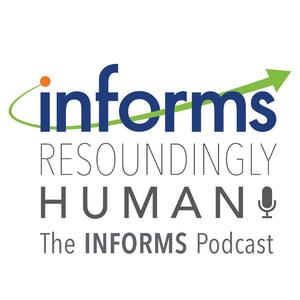Published: July 16, 2021

More than 61 million adults in the United States are living with a disability. To put that into perspective, that translates to 1 in 4 adults are pursuing their personal and professional goals and dreams, all while managing the unique challenges a disability. And while legislation such as the Americans with Disabilities Act (ADA), prohibits discrimination to ensure they have the same employment opportunities as everyone else, the unemployment rate for Americans with disabilities is still nearly 18%.
As we strive to increase diversity, equity and inclusion in all settings and situations, there remain opportunities to identify and improve policies and conditions within every workplace setting to support those employees with disabilities in order minimize stigma, increase awareness and understanding of their unique challenges, and ensure their contributions are recognized and valued just as those of employees without disabilities.
Joining me to discuss his research into the employment of persons with disabilities and the valuable insight this work has provided is Dustin Cole with Michigan State University. We’ll explore some common misconceptions regarding persons with disabilities in the workplace, the value of employing these individuals at all levels within an organization, and additional steps employers can take to ensure they are supporting a productive and inclusive working environment.
Culture is also important. The organizations we’ve spoken to have all said employing workers with disabilities is part of their strategy and they planned their culture around it. It’s not about workers with and without disabilities, but rather what can be done to make work easier for everyone. Processes are designed to be more accommodating for all workers. There was a clear focus on making it work for everyone and that changed the focus from us and them to simply us.
Interviewed this episode:

Dustin Cole
Michigan State University
Dustin Cole is a doctoral candidate in the Supply Chain Management department. His research interests are related to social and environmental sustainability, focusing on inclusive employment and water related sustainability topics respectively. He co-authored a chapter in Responsible Business Operations pertaining to organizations that have been successful in being inclusive of workers with disabilities, with a paper on the same subject entitled “Does Leader Disability Status Improve Performance Outcomes for Workers with a Disability? An Empirical Study in the Apparel Industry.” winning the 2020 DSI conference doctoral showcase best student paper award.
Episode Transcript
Contact us to request transcript.
Want to learn more? Check out the additional resources and links listed below for more information about what was discussed in the episode.
Disability Impacts All of Us, Centers for Disease Control and Prevention
Disability and Employment, United Nations Department of Economic and Social Affairs – Disability
Supply Chains as Agents of Equity & Inclusion within Communities, webinar featuring Dustin Cole
References
Hernandez B, McDonald K (2010) Exploring the Costs and Benefits of Workers with Disabilities. The Journal of rehabilitation 76(3):15-23.
Miralles C, García-Sabater JP, Andrés C, Cardos M (2007) Advantages of assembly lines in Sheltered Work Centres for Disabled. A case study. International journal of production economics 110(1):187-197.
Narayanan S, Terris E, Sharma A (2019) Abilities-first: steps to create a human-centric inclusive supply chain. Supply Chain Management Review.
Williams-Whitt K, Kristman V, Shaw WS, Soklaridis S, Reguly P (2016) A Model of Supervisor Decision-Making in the Accommodation of Workers with Low Back Pain. Journal of occupational rehabilitation 26(3):366-381.
Zanoni P (2011) Diversity in the lean automobile factory : doing class through gender, disability and age. Organization (London, England) 18(1):105-127.
